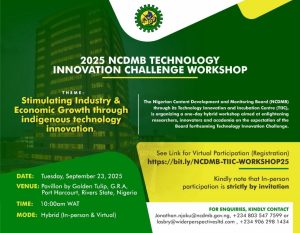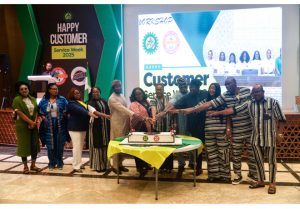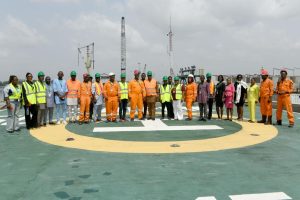The oil and gas industry in Nigeria was for decades the exclusive domain of International Oil Companies in areas ranging from exploration to production and trading. For this reason, Nigerians were unable to harvest technological, industrial and economic benefits from oil and gas activities in the country.
The Nigerian Oil and Gas Industry Content Development Act 2010 was, therefore, passed to reverse this trend by increasing indigenous participation in the oil and gas industry.
As a basic principle, the Act gives preferential treatment to all Nigerian companies operating in the industry. It also requires that promotion of Nigerian content development shall be a major concern in all projects and operations in the oil industry. More succinctly, the Act provides that Nigerian independent operators shall have the first consideration in the award of oil blocks and lifting licences, among others, in all projects for which contracts are to be awarded. The law applies to all spheres of the industry, not only contracting but also employment of staff and labour, training and procurement of goods, materials and services.
In spite of this, the Executive Secretary, Nigerian Content Development and Monitoring Board, Mr. Ernest Nwapa, describes the losses incurred through the lack of the NOGICD Act as phenomenal, saying that over $380bn was lost to capital flight in 30 years. This, according to him, was aggravated by the loss of over 10 million direct and indirect jobs as well as loss of investments in the development of local fabrication yards and facilities.
Generally, Nwapa decried that the country lost the opportunity for industrialisation through oil and gas activities and currently maintains no capacity in building drilling rigs, pipelines, valves, pumps, production platform, marine vessels, research and development, among others.
“We can’t get value with the absence of participation in these key areas of high impact,” Nwapa said.
According to him, it is critical for Nigeria to maximise value from the activities in order to increase local participation in the oil and gas value chain from its current level of 15 per cent.
In view of this, Nwapa says the key thrust of the NOGICD Act 2010 is to maximise utilisation of Nigerian-made goods and human resources as well as Nigerian-owned assets; link oil & gas industry to other sectors of the economy; ensure participation of indigenes and oil-producing communities in all aspects of the oil and gas business; and foster institutional collaboration. The focus areas include job creation, training and domiciliation of capacity, technology and services and the development/upgrade of facilities and infrastructure.
The Nigerian content initiative, no doubt, has catalysed increased participation of indigenous companies in the oil and gas industry with heavy investments sourced from banks locally and internationally.
For instance, there are about 500 fields located in the Niger Delta and 55 per cent of them are onshore with the remaining in shallow waters. Of these fields, only about 190 are producing, leaving about 60 per cent of the swamp regions of the Niger Delta unexplored. This, Nwapa said, meant that increasing opportunities abound for indigenous drilling companies.
As a result, Oando Energy Services Limited, a provider of energy services to exploration and production companies in Nigeria, said it had invested $500m in the acquisition of five swamp rigs since 2007 as a response to the local content initiative.
The company said the in-country refurbishment of the OES Passion rig at the Federal Light Terminal, Onne, cost over $40m, adding that it had also secured a $100m facility from local banks in the last three years for various rig projects.
The latest of its rig investment, the company said, was the refurbishment of the OES Respect rig, which arrived Nigerian waters on November 13, 2013 and now berthed at the Intels Jetty in Onne after a 21-month enhancement and life-time upgrade project was successfully concluded.
Speaking during the third Practical Nigerian Content Workshop held in Yenagoa, Bayelsa State in 2013, the Managing Director/Chief Executive Officer, OESL, Mr. Bandele Badejo, said several million of dollars was spent on the newly upgraded 3,000 HP/10,000 PSI “OES Respect” swamp rig, but decried that the rig had yet to be contracted in spite of various opportunities currently being pursued with operators.
The decision to refurbish and upgrade the rig in 2011, the company said, was driven by the numerous contracting opportunities in the swamp drilling market. At that time, OES Respect was the only available swamp rig capable of operating in the Niger Delta. And in line with NCDMB’s desire that Nigerian drilling contractors should demonstrate ownership of drilling assets, OESL proceeded to undertake the refurbishment and upgrade project to meet current client requirement and close the demand gap.
OESL said it had increased its Nigerian staff strength from 300 to 416 in the last four years, but this was set to increase with the deployment of OES Respect.
According to the company, OES Respect, if contracted, is capable of creating 100 direct jobs, increase the availability of swamp drilling assets and make significant contribution to national oil and gas production.
OESL currently operates a vendor management system that prioritises the sourcing, engagement and development of Nigerian/local vendors and suppliers for the provision of various rig and operations specific services.
OESL said its oil field services solutions include: drilling and completion fluids, drill bit and engineering services, and drilling rigs. And having invested in one of the region’s largest swamp rig fleet with four rigs dedicated to IOCs, engaging all its rigs is very critical to sustainable return on investment.
As part of efforts to boost the prospect of the rig being deployed in consonance with the spirit of the local content initiative, OESL said it hosted the executive management of the NCDMB led by Nwapa, the executive secretary and prospective clients on a rig inspection of OES Respect on December 17, 2013 in order to boost the prospect of the rig being deployed.
Badejo said the tour of the rig was held to engage the executive management of NCDMB on the rig’s capability, as well as the amount of investment/work put into the refurbishment of the rig; and how the rig could add to the Federal Government’s production targets and capacity building.
The company also said the tour was meant to highlight the urgent need for the rig to be contracted to enable OESL to meet its obligations.
Prospective clients for such rigs, according to experts, include Shell, Chevron, NPDC, NAOC, SEPLAT, PRENCO and ELAND, among others.
Considering the fact that indigenous operators borrowed money from local and international banks to boost their exploration and production capacities, experts said it was important for them to be patronised by IOCs operating in the country in order for them to meet their obligations with their banks.
The General Manager, Fenog Nigeria Limited, an indigenous provider of Horizontal Directional Drilling technology in the Nigeria’s oil and gas industry, Mr. Chukwudi Uwakwe, in a similar vein, urged the IOCs operating in the country to encourage local operators by considering them for more contracts and ensuring fair treatment for them.
He said upping the patronage of indigenous companies that had invested so much in capacity development would buoy the local content drive of the government.
He said, “Let me use this opportunity to appeal to IOCs and the Federal Government to consider the local companies first before their foreign counterparts in the scheme of things in the industry. That is my appeal because if we work and execute a project, the money will be used to develop Nigeria, but if foreign companies get the contract, they will only pay salaries and take the money to their countries.”
Similarly, the Executive Director, Fenog, Mr. Mathew Tonlagha, said, “We are not getting a fair share yet as the leading Nigerian contractor in HDD by way of patronage. What keeps our head above the water is the fact that we own the equipment.
“Owning equipment is actually a plus because a client will always want to give the job to someone who owns the equipment. And if you own equipment, the task of executing the job is cheaper than when you go outside to rent the equipment.
“We are pleading with the IOCs, Shell, Chevron and the likes of them to encourage us because they are actually not encouraging us at all.”
Also at the third Practical Nigerian Content Workshop, the Vice-Chairman, Dorman Long Engineering Limited, Chief Chukwuma Okolo, said a significant local capacity had been developed by fabrication companies and about six large fabrication yards were currently servicing the oil and gas industry.
He, however, said for the fabrication yards to consolidate indigenous capacity, create employment and get ROI, there must be patronage from the IOCs.
According to him, the capacity development initiatives aimed at boosting local competence under the Nigerian Content Development Initiative should be demand-driven, especially as it relates to fabricating companies.
He said medium-sized and large fabrication yards in the country were just about six in number, adding that they already had enough capacity for any job in the oil and gas industry.
Okolo said what fabricating yards needed was a guaranteed purchasing order to ensure that they would be patronised if they built more capacity.
Therefore, experts say the local content initiative is already making a significant impact, spurring indigenous investments in oil and gas. They, however, emphasised the need for the local players to be patronised by the IOCs, as well as emerging oil independents in the country in order to ensure they get returns from their investments.
Discover more from Nigerian Content Development & Monitoring Board
Subscribe to get the latest posts sent to your email.










